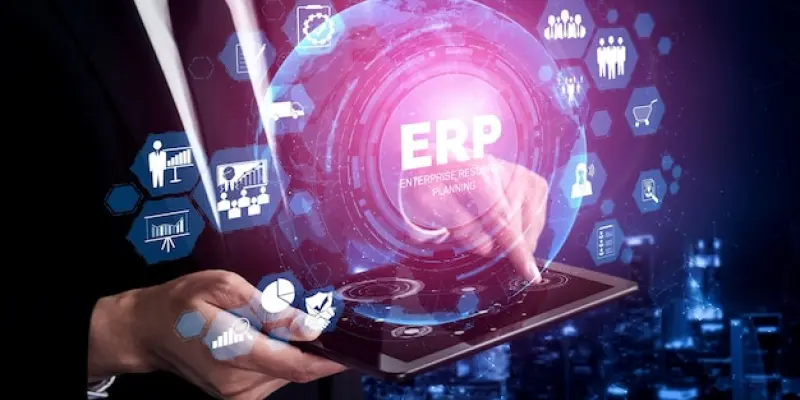As the digital landscape continually evolves, Microsoft has made a decisive announcement encouraging users of Dynamics GP and Dynamics SL to migrate to Dynamics 365 Business Central by 2031. This recommendation comes in response to the rapidly changing Enterprise Resource Planning (ERP) software industry and Microsoft’s ongoing efforts to stay competitive.
Industry Overview
The ERP software industry stands at the forefront of digital transformation, aiding businesses in streamlining operations and maximizing productivity. Dynamics GP and SL have had a notable presence in this sector, serving medium-sized businesses with comprehensive financial and operational solutions. However, with increasing customer demands for integration, mobility, and real-time analytics, legacy systems are experiencing diminishing relevance.
In the current market, key players like Microsoft, SAP, and Oracle continue to drive technological advancement, pushing boundaries with artificial intelligence (AI) and cloud-based solutions. Regulations such as GDPR and SOX place emphasis on data protection and financial transparency, pressuring companies to adopt more modern, compliant systems.
Market Trends and Analysis
Emerging Trends
The ERP software industry is experiencing a period of transformation driven by several impactful trends. Cloud computing and AI integration have become central to business operations, allowing for increased scalability and data-driven decision-making. Additionally, the demand for remote work solutions and mobile access has shifted businesses toward more adaptable and interconnected software platforms.
These trends highlight the growing consumer preference for platforms offering flexibility and cost-effectiveness. In response, market opportunities are expanding for vendors who can deliver feature-rich, agile solutions that keep pace with technological advancements and evolving expectations.
Market Data and Projections
Current data reveals robust growth in the ERP sector, with projections showing sustained expansion over the next several years. As organizations pursue digital transformation, performance indicators suggest a shift from traditional, on-premises ERP systems to modern, cloud-based platforms like Dynamics 365 Business Central. This transition is expected to address inefficiencies and unlock new growth potential for businesses.
Looking ahead, the emphasis is on leveraging integrated AI functionalities and strengthening cyber resilience. This approach will likely continue to drive market momentum, presenting vendors with continuous opportunities to innovate and capture market share.
Industry Challenges and Solutions
Technological evolution, regulatory compliance, and competitive pressures collectively present challenges for the ERP industry. Legacy systems like Dynamics GP and SL encounter obstacles in meeting modern demands for speed, adaptability, and security. Additionally, regulatory adherence is becoming more complex, requiring systems to comply with stringent data protection standards. To mitigate these issues, companies are increasingly migrating to advanced platforms that eliminate technical debt and offer superior functionalities. Strategies such as investing in cloud infrastructure, incorporating AI, and fostering collaboration with regulatory bodies are effective solutions to enhance industry resilience and adaptability.
Regulatory Environment
The ERP industry operates under constant regulatory scrutiny, necessitating adherence to diverse legal frameworks. Key regulations impacting this domain include GDPR, SOX, and various data privacy laws. Compliance with these standards is critical for maintaining customer trust and safeguarding sensitive information.
With the rise in cyber threats, robust security measures and audit trails are becoming indispensable. Companies like Microsoft are prioritizing compliance and security enhancements within their offerings, which are vital for ensuring the continued viability and competitiveness of their ERP solutions.
Future Outlook
The future of the ERP software industry hinges on innovation, consumer adaptation, and economic conditions. Emerging technologies, especially AI and machine learning, are poised to create shifts in market dynamics. These innovations will likely revolutionize how businesses manage operations, setting the stage for transformative growth.
Evolving consumer preferences toward seamless, integrated solutions are anticipated to influence the development of ERP platforms. Regulatory changes and global economic shifts will further shape industry trajectory, underscoring the importance of innovation and strategic foresight in navigating future challenges and seizing new opportunities.
Conclusion and Recommendations
Overall, the ERP landscape is evolving significantly, marked by an industry-wide shift toward modern, integrated solutions. Companies still relying on legacy systems like Dynamics GP and SL face increased risk of obsolescence unless they consider the recommended migration to Dynamics 365 Business Central. Moving forward, focusing on AI integration, cloud capabilities, and enhanced security measures are pivotal strategies for sustaining competitive advantage. Identifying growth opportunities within this dynamic sector will be essential for vendors seeking to capitalize on digital transformation trends and achieve long-term success.

